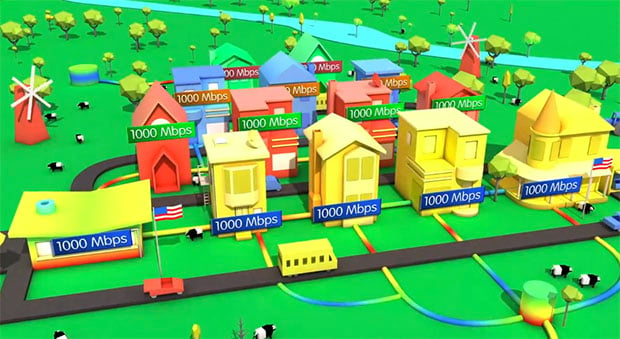The FCC Amps Up Legal Definition Of 'Broadband' By Over Five Times The Previous Data Rate
The broadband situation in America right now isn't ideal, and in fact, some might call it appalling. While it doesn't take much effort to find people with high-speed connections, there remain many out there who don't have one. And even worse, in some cases they might only have access to one ISP.
Well, with even president Obama urging for net neutrality to pass, as well as to see our Internet become a title II class utility, the broadband situation has got to change. And now, with the FFC's reclassifying of what broadband actually is... I guess we're on our way.
Previously, the FCC denoted a broadband connection as one that delivered speeds of at least 4 Mbps down, and 1 Mbps up, whereas now, the download speed has more than quintupled to 25 Mbps, while the upload has tripled, to 3 Mbps.

That's a stark jump, and a much-needed one. When the FCC made its previous broadband denotation, it based it on just a single user, whereas now, it's based on a household. Given that, even 25 Mbps might seem a little low, but it does at least seem more realistic than 4 Mbps.
Up until five months ago, I was on a painful 7 Mbps down / 1 Mbps up Internet package, and I can tell you: it was horrible. Even with nothing else going on in the house, I'd be lucky to stream 720p YouTube content, a problem made worse by the fact that my true Internet speed was closer to 5 / 0.5. Ultimately, only one person could watch an SD stream at a time if others were browsing - as I said, it was horrible.
The fact of the matter is, a lot of people still deal with connections just like that, and often, competition is non-existent. With FCC's update, we can hope that it will result in some swift change. Because honestly, the more that a service like Google Fiber rolls out, as it just has to four brand-new locations, the more ridiculous these small Internet packages are looking.

